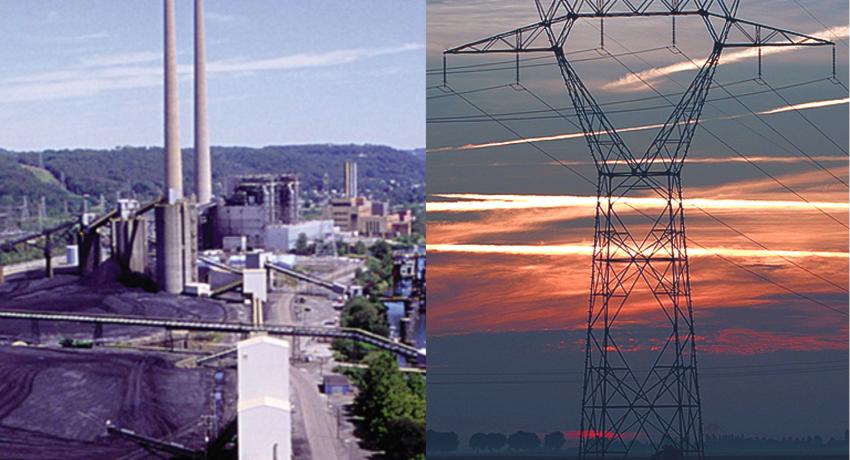Columbus, OH-The EPA released new proposed rules Thursday that would all but ban the use of fossil-fuels to produce electricity, which if implemented, would pose a great threat to the reliability of the nation's electrical grid.
According to the EPA, the proposed new carbon pollution standards for coal and natural gas-fired power plants would protect public health, reduce harmful pollutants, and deliver up to $85 billion in climate and public health benefits over the next two decades. Read the EPA's proposed rules here.
Ohio's Electric Cooperatives has warned the reliability of electricity was at risk due to overreaching regulations. During Christmas 2022, PJM, the organization that manages the electrical grid in Ohio, came dangerously close to having to implement rolling blackouts during the extreme cold snap. Nine states experienced blackouts due to reliability issues with the grid. These new EPA rules would make reliability much worse. PJM and NERC have issued assessments and warnings regarding grid reliability in the past year.
Coal and natural gas are the only natural resources available today that provide reliable, baseload power generation to the electrical grid, in addition to nuclear power. These sources are available on demand, 24/7, 365 days a year, even during extreme weather conditions, at an affordable cost to consumers and cooperative members. They are vital resources to providing safe, reliable, affordable electricity that our lives, safety and livelihoods depend on.
"Our electric power system works on the principles of science and engineering and people of all political persuasions depend on a reliable supply of electricity for our health, safety, and security," said Pat O'Loughlin, President, and CEO of Ohio's Electric Cooperatives. "Unfortunately, we will need to fight our federal government for many months and likely years to avoid the harmful effects of this unrealistic plan, and we will need your help and support to keep the lights on."
The National Rural Electric Cooperative Association (NRECA) CEO Jim Matheson issued a statement in response to EPA’s latest proposed rule to regulate power plant emissions.
“This proposal will further strain America’s electric grid and undermine decades of work to reliably keep the lights on across the nation,” Matheson said. “And it is just the latest instance of EPA failing to prioritize reliable electricity as a fundamental expectation of American consumers. We’re concerned the proposal could disrupt domestic energy security, force critical always available power plants into early retirement, and make new natural gas plants exceedingly difficult to permit, site, and build.”
“Nine states experienced rolling blackouts last December as the demand for electricity exceeded the available supply. Those situations will become even more frequent if EPA continues to craft rules without any apparent consideration of impacts on electric grid reliability. American families and businesses rightfully expect the lights to stay on at a price they can afford. EPA needs to recognize the impact this proposal will have on the future of reliable energy before it’s too late.”
U.S. Representative Troy Balderson, who serves Ohio's 12th Congressional District, is already speaking out on the EPA rules in an editorial in The Columbus Dispatch.
"When the American people reach for the light switch, they should have confidence in knowing that the lights will actually turn on. Unfortunately, this is becoming less of a certainty as the Biden administration’s rush-to-green agenda pushes the country’s electrical grid to the brink. As a Member of the House Energy & Commerce Committee, I am taking steps to ensure we keep the lights on in America," wrote Balderson.
The Wall Street Journal Editorial Board also published a response to the EPA rule release. (Excerpts of the published opinion below.)
An EPA Death Sentence for Fossil-Fuel Power Plants: The Biden agency’s new rule means the end of natural gas-fueled electricity.
Progressives groused that the Inflation Reduction Act lacked “enforcement mechanisms” to punish fossil fuels. Well, the White House took care of that Thursday with a new 681-page Environmental Protection Agency proposed rule that amounts to a death sentence for fossil-fuel power plants.
The Supreme Court last summer blocked the Obama Clean Power Plan, which would have forced a generation-shift in electric power to renewables from coal. The Biden EPA’s plan would do that and more by other means that are also probably unconstitutional.
Alternatively, power plants can shut down, as most probably will. The EPA has been stacking burdensome rules onto coal plants, including three others since March, with the goal of forcing them into premature retirement.
“By presenting all of those rules at the same time to the industry,” EPA Administrator Michael Regan said last year, “the industry gets a chance to take a look at this suite of rules all at once and say, ‘Is it worth doubling down in investments in this current facility? Or should we look at that cost and say now it’s time to pivot and invest in a clean energy future?’”
But the clean energy future is still the future, and the technologies that EPA wants to mandate don’t exist. Forcing fossil-fuel plants to shut down prematurely will endanger grid reliability. Don’t worry, EPA says, plants won’t have to fully comply for seven to 12 years. But their owners and utilities must make economic investment calculations today.
The proposed rule won’t make an iota of difference to the climate as China and India ramp up coal power.
The EPA is gambling that it can sneak this through the courts. But the rule is a de facto mandate to shift to renewables from fossil fuels, which Congress never explicitly authorized. The Supreme Court’s 5-4 Massachusetts v. EPA decision that let the agency regulate greenhouse gas emissions rests on shaky ground. EPA is inviting a legal challenge that could boomerang, and let’s hope it does.






